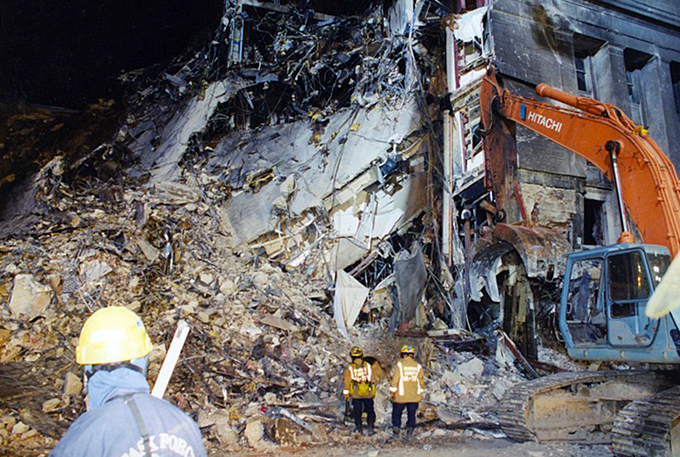
By the FBI
On the morning of September 11, 2001,19 members of al Qaeda hijacked four domestic airliners, leading to the deaths of nearly 3,000 people.
What followed would become the largest investigation in FBI history, code-named PENTTBOM. The attack and crash sites were also the largest crime scenes in the Bureau’s history.
At the peak of the case, more than half of the FBI’s agents worked to identify the terrorists who carried out the suicide missions and their sponsors and, with other agencies, to prevent possible future attacks.
The FBI looked into more than a half a million investigative leads, including several hundred thousand tips from the public.
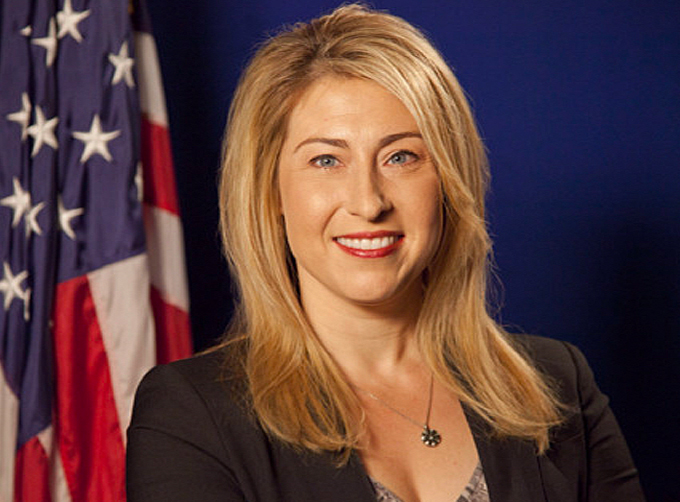
Interview Transcript:
You’re listening to Inside the FBI, and I’m Mollie Halpern of the Bureau.
Ahead in this episode, learn why 17 years after the attacks, the impact on first responders—and their loved ones—is only now beginning to rear its ugly head.
But first, listen to the declassified recordings of first responders, air traffic controllers, and terrorists themselves as the attacks unfolded.
Air traffic controller: American 11, are you trying to call?
Terrorist: Nobody move. Everything is okay. If you try to make any moves, you will injure yourself and the airplane. Just stay quiet.
Halpern: A terrorist had hijacked American Airlines Flight 11 and instructs the 92 people on board the Boeing 767.
(9/11 – The North Tower Strike – American Airlines Flight 11. Courtesy of X Pilot and YouTube. Posted on Jul 23, 2017.)
Terrorist: Nobody move, please. We are going back to the airport. Don’t try to make any stupid moves.
Halpern: At 8:46 a.m., Flight 11 crashes into the north tower of the World Trade Center in New York City.
At approximately 9:03, air traffic controllers watch as a second plane, United Airlines Flight 175, with 65 people aboard, slams into the south tower.
John F Kennedy air traffic controllers (multiple voices): Another one just hit the building. Wow. (Unintelligible.) Another one just hit it hard. Another one just hit the World Trade. The whole building just came apart. Oh my God. Holy smokes.
Witness one: Was it a plane?
Witness two: Yep, I saw it coming down.
Halpern: At 9:37 a.m., American Flight 77, with 64 people on board, crashes into the Pentagon in Arlington, Virginia.
Air traffic controller/first responder one: Looks like it went into the Pentagon.
Air traffic controller/first responder two: We got a plane down. We got a plane down.
(9/11 – The Pentagon Strike – American Airlines Flight 77. Courtesy of X Pilot and YouTube. Posted on Jul 20, 2017.)
Halpern: Meanwhile, four terrorists storm the cockpit of United Flight 93 as it approaches Cleveland. Screams for help come from inside the plane.
Flight 93 audio: Mayday! Mayday! Get out of here! We’re all going to die here!
Halpern: The terrorists gain control of the plane. They kill a flight attendant and a passenger.
Terrorist: Hi, this is the captain. I would like you all to remain seated. We have a bomb aboard, and we are going back to the airport, and we have our demands. So please remain quiet.
Air traffic controller: United 93 calling. United 93, I understand you have a bomb on board. Go ahead.
Halpern: The terrorists turn the Boeing 757 toward Washington, D.C.
The remaining six crew members and 36 passengers, aware of the other attacks, vote to fight back.
They rush toward the cockpit in a counter attack.
At 10:03, the plane, carrying 7,000 gallons of jet fuel, crashes into a field near Shanksville—about an hour and a half outside of Pittsburgh.
(9/11 – Retaliated – United Airlines Flight 93. Courtesy of X Pilot and YouTube. Posted on Sep 20, 2017.)
Halpern: For some, the 9/11 terror attacks stir up memories. For others, 9/11 is learned in history class.
And for FBI Special Agent Scott McDonough, 9/11 was life changing.
In the weeks after the attacks, McDonough’s role as a tactical air officer was to snap aerial photos of the former site of the World Trade Center and the Fresh Kills Landfill on Staten Island.
All of the material recovered from Ground Zero was placed on barges and floated down the river toward the Fresh Kills Landfill.
There, the FBI’s Evidence Response Teams would sift through the debris to collect evidence.
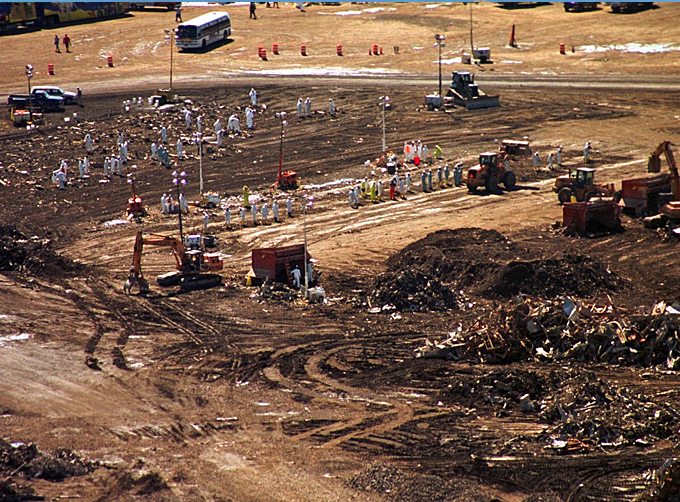
Scientists feared the heavy material from Ground Zero would collapse the soft fill of the landfill.
So Scott and his team flew at low levels multiple times a day through contaminated clouds to provide scientists information they’d need to help prevent an environmental disaster.
Scott McDonough: One of the other things that we did on a regular basis over Ground Zero with the helicopters were to search the rooftops of various buildings in lower Manhattan for evidence, body parts, plane parts, anything that might help with the investigation.
Halpern: Scott and the team weren’t wearing any protective equipment other than their standard helicopter uniforms, which consisted of a helmet, flight suit, gloves, and boots.
(Courtesy of WTC911demolition and YouTube. Posted on Apr 8, 2012.)
He says he could feel burning in his throat as he breathed, and the air was unlike anything he had ever smelled before—or since.
McDonough: Most of the time that we were flying, we would fly with the doors open just because it was much easier for me to stand out on the skid of the helicopter while attached to the helicopter with a strap, but to stand out on the skid to take the straight-down aerial photos.
Halpern: At that point in time, Scott, the son of a retired FBI agent, had been in the FBI for five years and was familiar with crime scenes.
But this—this was unlike anything he had ever experienced.
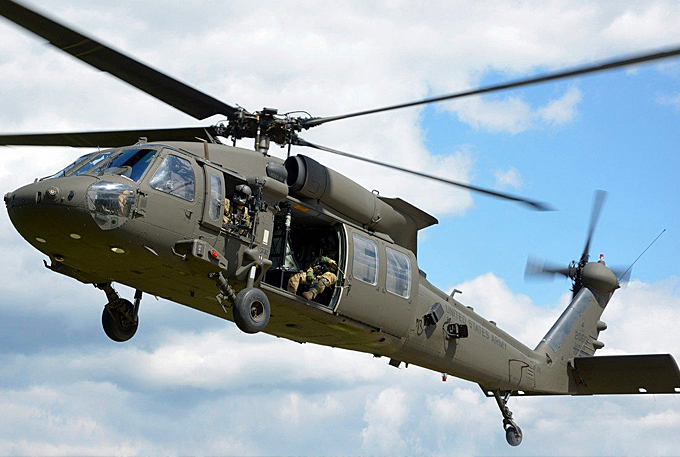
McDonough: So it was very surreal to not see the towers standing there, and then as we got closer, just to see the devastation and the destruction that had occurred, and everything going on below was indescribable.
Can’t put words to it.
Also, several days later when we went via ground up to Ground Zero, on foot, to actually kind of put it all together, mentally, to see it both from the air as well as from the ground was unbelievable.
Halpern: After three weeks of grueling work, Scott returned to his assigned field office in Chicago, where he focused on 9/11-related investigations.
Sept. 11th is Still Killing FBI Agents & First Responders
(After risking their lives to help others on September 11, 2001, more than 7,500 first responders have developed some form of cancer. Courtesy of NBC News and YouTube. Posted on Sep 9, 2018.)
Halpern: Seventeen years have passed since 9/11, and I ring the doorbell to the Florida home Scott shares with his wife, two children, and family dog.
Scott, who is currently assigned to the FBI Miami Field Office, answers the door, and his bright blue eyes emphasize the reason behind why I’m visiting my colleague—perspective.
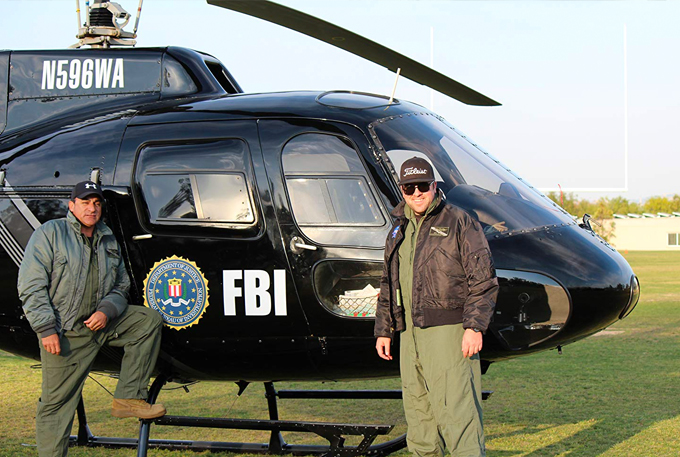
As an FBI pilot, Scott has spent a lot of time looking at life from the 20,000-foot view, seeing the big picture.
But it’s the details of his recent personal experience that I’m here to learn and share with you.
This part of Scott’s story begins in April of last year.
McDonough: I had noticed that I had some blood in the stool when I went to the bathroom. And after noticing that, I kind of kept an eye on things, and being a typical guy I didn’t go right to the doctor.
It wasn’t until about four months later, in late August of 2017, that my wife finally convinced me that I needed to go see a GI doc.
Halpern: The gastroenterologist immediately ordered a colonoscopy for Scott.
McDonough: Two days later, I went in for a colonoscopy, and during the colonoscopy, my GI doc found a two-centimeter tumor in my rectum.
Two days later, the biopsy that was taken during the colonoscopy came back as cancer.
Halpern: Scott described the moment his 44-year-old self learned of his diagnosis of colorectal cancer.
McDonough: First, and really the only thing that went through my mind was: Okay, let’s get it out as quick as possible, and let’s start this fight.
Let’s get this fight going and get this tumor out of me. What do I need to do to get this tumor out of me?
Halpern: Scott underwent a series of MRIs and then met with a colorectal surgeon, who advised that the best course of action would be to surgically remove the tumor.
The surgeon also referred Scott to the multimodality clinic at a local cancer institute. Doctors there believed surgery would rid Scott’s body of cancer.
McDonough: So on September 19, it was decided that I would go in for the surgery, which was a total mesorectal excision that was done robotically and laparoscopically.
They removed all of my rectum and part of my lower sigmoid colon, and gave me a temporary ileostomy to let that resected part of my colon heal.
Halpern: A week later, the pathology results on the removed tumor, the sigmoid colon, and the 24 lymph nodes confirmed that the cancer was not gone, after all.
The cancer had spread into one of the lymph nodes.
Scott returned to the cancer institute to meet with the doctors again.
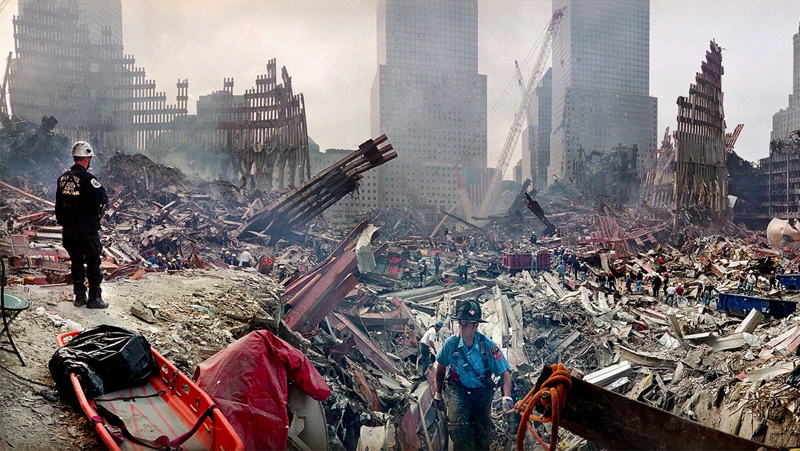
McDonough: The decision was made that I would need to go through chemotherapy. So I started chemotherapy in the beginning of October and went through six rounds of chemotherapy.
Ended the chemotherapy in early January of 2018, and then the end of January in 2018 was when they did the reversal of the ileostomy and put me back together again.
Halpern: Scott has completed his chemotherapy, multiple CT scans, and a one-year post-diagnosis colonoscopy. Thankfully, he is currently cancer-free.
McDonough: I’m doing great. I’m doing fantastic.
Halpern: Scott’s story is his own, but it’s eerily similar to others who responded to the 9/11 terror attacks.
Many are sick and others have died as a result of illnesses directly linked to their exposure to carcinogens during the rescue and ensuing recovery, clean up, and investigation into the attacks.
A total of 15 FBI agents have died from 9/11-related illnesses—three of them since March of this year: Supervisory Special Agents Melissa Morrow and Brian Crews and Special Agent in Charge David LaValley.
(Special Agent in Charge David J. LeValley died Saturday, May 26. Courtesy of MLive and YouTube. Posted on May 26, 2018.)
Many more members of the FBI family are currently sick.
McDonough: The tough part for me is when I see, or when I hear of fellow agents that have passed as a result of 9/11-related diseases, I feel as though I kind of share something with them.
It’s difficult not knowing what the future holds. I’m strong, I’m fighting this, and I’m going to continue to fight this and beat this, but there’s always that little bit of, you never know. Which is scary.
Halpern: These men and women served America after the deadliest terrorist attack in our country’s history.
Resources are available for them during their times of need.
It’s for this reason that Scott—and the FBI as a whole—encourages all 9/11 first responders to register with the World Trade Center Health Program, the September 11th Victim Compensation Fund, or VCF, and other federal programs.
It could be life-saving advice.
The VCF provides compensation to those who endured physical harm or to the beneficiaries of those who have been killed as a result of the attacks.
The World Trade Center Health Program provides covered medical services for responders at all of the 9/11 sites and to the survivors who lived in the New York City disaster area for a designated time period.
Thanks to the outreach efforts of the FBI’s then-chief medical officer, Scott registered for the World Trade Center Health Program about four months before he was diagnosed with colorectal cancer, which is identified as a 9/11-related disease.
McDonough: If you were either a first responder or you lived in that area, even though you may not be sick now, you need to get registered with the World Trade Center Health Program.
If anything, it’s a free checkup every year. But if you end up getting sick, that’s not the time you want to say, “I wish I was part of the World Trade Center Health Program.”
(Local FBI AgentLaurie Fournier honored at annual service, died of cancer linked to 9/11 evidence recovery site. Courtesy of News 5 Cleveland. Posted on May 8, 2018.)
Halpern: In addition to encouraging fellow first responders to register for these programs, Scott is training others to protect themselves with the proper gear when they respond to dangerous situations and environments.
McDonough: I’m able to bring my education that the FBI has given me with regards to personal protective equipment as well as safety, to other parts of the FBI.
Halpern: That includes the Hazardous Evidence Response Team, of which Scott is the full-time team leader.
McDonough: We wear different personal protective equipment, including the plastic suits, as well as gas masks, as well as self-contained breathing apparatus, which are tanks on our back to bring good breathing air into a hazardous environment.
That’s what my team does.
Halpern: I needed the answer to one last question before our time together ended.
Would you respond to 9/11 all over again if you could?
McDonough: Absolutely. Yes, definitely. That’s just something that we have to do, and that’s something that the FBI does, I think, very well.
I’m a fighter and I’m going to fight for what I believe is right and what is best for this country, and that’s what I continue to do and that’s what I will always do, as long as I carry that little gold badge.
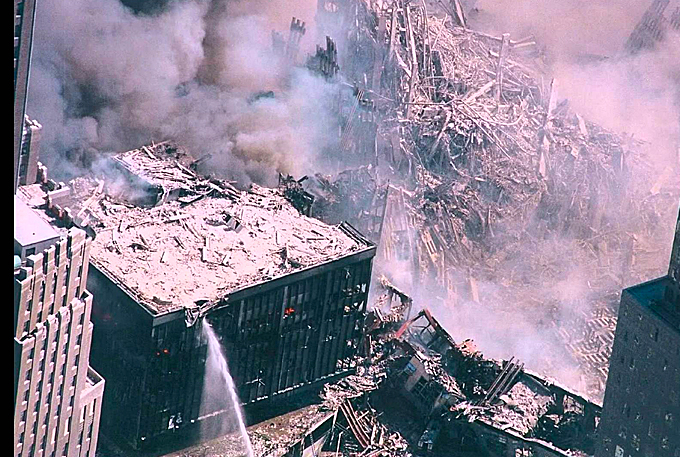
Halpern: To learn more about the 9/11 health crisis, join me on the next Inside the FBI.
You’ll hear the last recorded words from an FBI special agent who died from a 9/11-related illness, learn how his widow and their five children are surviving without him, and more.
Audio Download
Original post https://www.fbi.gov/audio-repository/inside-podcast-9-11-related-illnesses-part-1-091118.mp3/view
Learn More…
Sept. 11 Still Killing FBI Agents & First Responders (Learn More, Multi-Video)
















